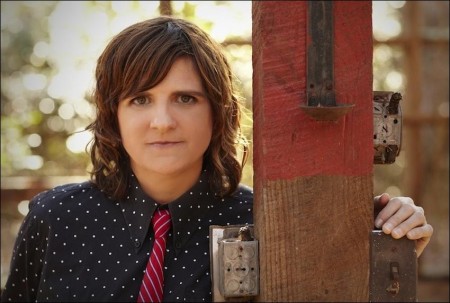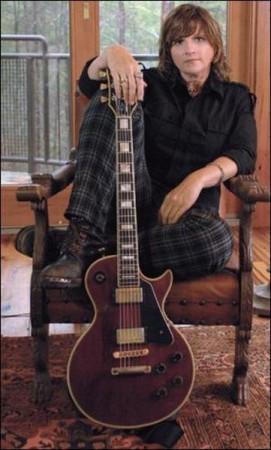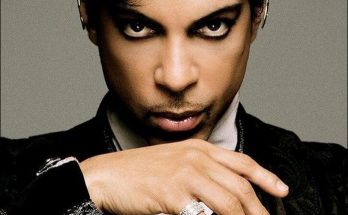Amy Ray of Indigo Girls talks about happy days. Amy Ray’s best known for her acoustic guitar work with Indigo Girls, but since the mid-’90s, when the band started incorporating electric guitar into stage and studio performances with Swamp Ophelia.
How do you go back and forth between playing your own shows one night, and then playing with Emily halfway across the country the next?
I take steroids. (Laughs) I usually try to plan tours so that they are in between stuff and they aren’t that crazy, so I typically don’t go back and forth, back and forth, but this one (eTown) just came in last minute. But usually I try to have a little time after a tour where I can rest my voice and get my trailer and van sorted out. And then I will go and do shorter runs with my band.
We don’t do more than two weeks because we all have other things going on. I just do it in the gaps, and the prep for it, I get my amps together and gets me in the mindset. Usually on the Indigo tour, I’m usually practicing the songs for the next tour. Today I have a day off and I will go through all of the Indigo stuff. I just sort of fill in the gaps and use what I can use.
So your own tours are more DIY than the Indigo shows?
Yeah…it’s like a van and trailer and no crew. We all drive ourselves and it’s all in small places.
I’ve seen you a few times and it doesn’t matter what venue it’s in. There is an infectious energy that bounces off you, hits the audience and reflects right back to you. What do you think causes that connection between you and your audience?
I really don’t know. I think we feel that we are honest about our experience, and we have a lot of energy for it. It feels like we’re just lucky on some level, and we started off in a grassroots way, so it always has been the way it happened, and people feel involved. We encourage it, and try to make it feel more like a community experience than just a rock show.
It’s hard to know…it might be because of the relationship Emily and I have, and I think our fans pick up on that connection we have, and they have the same connection, and it all works together.
“Galileo” is a song that always has an amazing sing-along any time I have seen you live. What do you think makes a song like “Galileo” have that type of response? Is it the song structure or the subject of the song or something else?
Emily has a knack for putting her finger on the pulse of what people are going to sing along with. She doesn’t even have to try. It’s not intentional, it just happens. That song is pretty complex, so I never would have guessed that someone would sing along, but they do! I guess it speaks to our audience. I guess they’re talented!
Either that or they know good music.
They can sing that and follow that melody and be right in pitch. It’s pretty cool.
What more recent songs feel like the older songs that people always sing along with?
“Pendulum Swinger” from the last record, people started singing along with certain lines. It takes about a couple of records to go by, and then you realize people are singing along with something two records ago. Like “Shame on You”, it was a radio single, but it wasn’t like everyone knew all the words, and now everyone knows all the words. Things grow and take on a life, and you never know what’s going to happen.
A song like “Shame on You” is so timely now, especially given the political climate in this country at the moment.
Yeah, it’s sad but true. (Laughs) That’s a song where I didn’t really know I was going to write something political, and it was pretty relevant where we were living, because there was a lot of things happening with the poultry industry, and a lot of Hispanic people moving, and the relationship between people living in the community already and those moving in. And then it became when we were singing it in the Southwest…I don’t live in the Southwest, so I don’t know what it’s like. Things start taking on new meanings.
Where are your efforts right now as far as charities and activism right now?
We have a lot of things going on all the time, but ongoing is our work with Honor the Earth, which is a Native environmental organization we started with Winona LaDuke. We find Native-run environmental and cultural sustainability groups that are very grassroots. It’s ongoing, and granting goes on every year. There are different musicians that come on board to help out, and a lot of projects we’re planning and working on are projects about sustainable energy development with tribes, and trying to change the paradigm from bad energy projects to good.
When I’m touring solo or with the Indigo Girls, we give money back in to replace carbon emissions. It’s something good to do, but I don’t think it’s the answer. Some of that supports certain wind farms in certain places that are cutting edge and progressive, rebuilding towns and revamping infrastructure. It’s good to fund those projects, but it shouldn’t let us off the hook about being more conscientious of the energy we’re using.
That’s the danger about carbon offset programs…you can relieve yourself of some guilt, but you really need to look beyond it and figure out different ways of running your business or touring that aren’t so impactful. And it’s hard as a touring musician because there’s a lot of energy use, so this is just one small thing to offset that.
Views: 92








